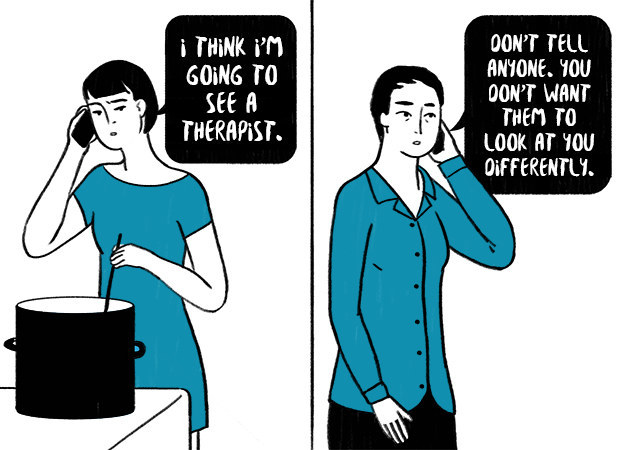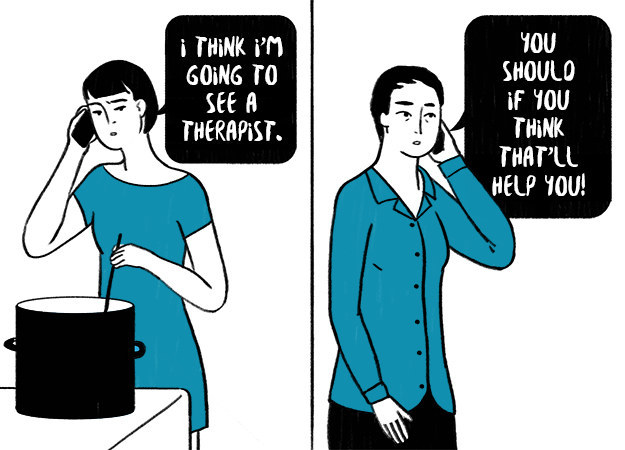Stigma
STIGMA: (noun.) a mark of disgrace associated with a particular circumstance, quality, or person.
In recent years, you may have noticed this word used more and more frequently, commonly in the context of mental health. Maybe this word has been used so much that it has lost some of its meaning. The goal of this email is to bring that meaning back, and educate you further on the topic of stigma against mental illness.
We recently hosted our second SHINE Mental Health Speaker event, where two physicians talked very openly about their struggles with addiction as medical trainees. They shared their very real and very personal experiences in an effort to put their faces and true stories behind the movement to break down the stigma of mental health.
3 Things to Know
- Stigma is a barrier seeking help.
- In one study, stigma was an explicit barrier to the use of mental health services by 30% of first- and second-year medical students experiencing depression.1
- “Avoidance of appropriate help-seeking behaviour… is linked to perceived norms which dictate that experiencing a mental health problem may be viewed as a form of weakness…” and this can cause students to feel shame, embarrassment, and social isolation. 2,3
- Stigma leads to fears about mental illness derailing future careers.
- Students may feel that “experiencing a mental health problem… has implications for subsequent successful career progression” 4
- Students may worry that revealing their depression will make them less competitive for residency training positions. 1-4
- The OMA Physician Health Program (PHP) – Link to Website
- The PHP is a confidential service provided by the OMA that works independently of the Regulatory Colleges. You can contact the PHP at any stage of your medical career, and can call them about yourself, a colleague or family member in distress.
- Confidential Line (1-800-851-6606), M-F from 8:45am to 5pm
- The PHP has helped people at all levels of training and in all specialties – mental illness can affect anyone.
Further Reading about Mental Health:
- Ten Things I wish I was Told Before Starting Medical School by Dr. Michael Kaufmann
- Doctors and Depression (video) by Dr. Aaron Carroll – he talks about his personal experience with depression and the research on mental health in medical trainees
- Bringing medical student mental health to light (page 14)
- Depression in Med School: You’re Not Alone
- Please also see the references at the end
The Words We Use Matter
Telling someone about your depression:
The response:

What you hear:

(source)
Talking about getting help:
What we don’t want to hear:

A better response:

(source)
Even though it might not seem like it on the surface, mental illness is a real problem amongst medical students. The stigma associated with it makes it that much harder to manage.
Let’s work together towards a future where it is no longer stigmatized to have a mental illness in the medical profession (or outside of it). Our two speakers are just two out of many that prove that having a mental illness and getting help did NOT hinder them from very successful careers. As always, don’t forget that OHPSA is also here to support your mental health (and other!) needs.
Please forward this message to a friend or family member. Help us in the fight to break down the stigma.
Take care,
Patrina Cheung (1T8) and Angela Han (1T9)
Mental Health Reps
U of T Student Health Initiatives and Education Team (SHINE)
Visit our Website and Facebook Page!
If you have interesting links to share, forward it to: shine.utmed@gmail.com!
Feel free to contact us:
Patrina: patrina.cheung@mail.utoronto.ca
Angela: angela.han@mail.utoronto.ca
References:
- Givens JL, Tjia J. Depressed medical students’ use of mental health services and barriers to use. Acad Med. 2002;77(9):918-921
- Chew-Graham CA, Rogers A, Yassin N. ‘I wouldn’t want it on my CV or their records’: medical students’ experiences of help-seeking for mental health problems. Med Educ. 2003;37(10):873-880
- Storrie K, Ahem K, Tuckett A. A systematic review: Students with mental health problems – a growing problem. International Journal of Nursing Practice. 2010;16(1):1-6
- Tjia J, Givens JL, Shea JA. Factors associated with undertreatment of medical student depression. J Am Coll Health. 2005;53(5):219-224
